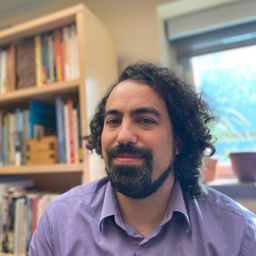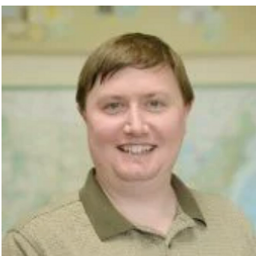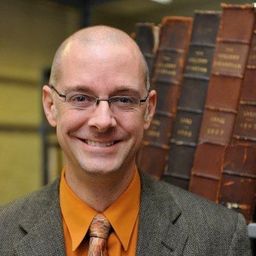
Beatriz Takahashi
Beatriz Takahashi (1991), PhD student in Architecture at McGill University, Master in History of Art, Heritage and Visual Culture from University of Porto (Portugal), and Bachelor in Architecture and Urbanism from State University of São Paulo (Brazil). She is interested in industrial heritage, modernist Brazilian architecture, urban planning, and visual arts. She frequently addresses these themes in her research, further debating themes such as social justice and culture and establishing critical reviews on urbanism and architecture. She has actively collaborated in cultural and educational institutions in Brazil and in Portugal by working with museum collections and exhibitions, developing strategies for cultural mediation, undertaking transdisciplinary research, evaluating final thesis, and working on pedagogical and as an editor and producer at Circo de Ideias, a Portuguese publisher specializing in architecture. She is a research team member at CITCEM – Transdisciplinary Research Centre «Culture, Space and Memory», and editorial coordination team member at Lisbon Architecture Triennale 2022.
Sessions auxquelles Beatriz Takahashi participe
Mercredi 31 Août, 2022
Sessions auxquelles Beatriz Takahashi assiste
Lundi 29 Août, 2022
Industrialization processes have been global from their very beginning. However, their interpretation still tends to be limited to specific locations or regions, and to specific time periods. Regularly, for example, it is stated that the industrial revolution started in Europe, from where it spread to the world, supposedly bringing technological and social progress to „less developed“ countries. Earlier periods of technology and knowledge transfer processes, that were already in place in t...
This session presents case studies and policy reviews that contribute to ongoing debate and international dialogue on the role of planning systems and conservation practices in addressing the challenges of citizen engagement—conserving local interests, place attachments alongside physical remnants of industrial heritage. Over the past half century, we have witnessed the development and changing focuses of urban planning and conservation discourses addressing industrial heritage. Relevant p...
This roundtable will examine innovative and creative pedagogical approaches and partnerships that have created opportunities for experiential learning and community engagement, while enabling successful delivery of programs and courses in industrial heritage. In recent years and with the ongoing situation with the COVID-19 pandemic, undoubtedly online and distance teaching and learning are a top priority. The discussions will offer an analytical dialogue on digital learning strategies and ...
Within the scope of a research project, state of the art sensor-carrying drones using optical, thermal and multispectral imaging are used for the inventory of object of industrial heritage. Within the a first study the applicability of the sensors on corroded/coated surfaces and complex geometries (crevices) shall be elaborated. For this purpose, tests will be carried out on exhibits and samples under defined laboratory conditions and initial results will be compared. The further approach,...
Patrimoine industriel et photographie entretiennent des relations étroites. La photographie constitue une source de l’archéologie industrielle. Elle permet d’éclairer les liens entre les hommes, leurs outils, leurs machines et leurs lieux de travail. Elle est également, une fois l’activité industrielle terminée, un outil de documentation et d’étude des sites. Mais bien au-delà, saisie par des artistes capables de transcender les représentations communes, conférant aux vestiges industriels ...
Mardi 30 Août, 2022
Cette session nous permettra d’explorer à travers neuf cas d’études internationaux les différentes stratégies de mise en valeur de patrimoines industriels ainsi que leurs impacts sur les communautés et leur territoire. L’analyse de musées, d’espaces culturels, de parcours et d’aménagements urbains sera l’occasion de mettre en relief les questionnements d’identité, de sens, de pertinence et d’impacts qui animent l’ensemble des acteurs de ce patrimoine en transformation. ...
Drawing on case studies from diverse social, cultural, and political contexts the papers in this session discuss the different responses to maintaining and assessing not only the physical sustainability of industrial heritage but also the sustainability of its social values and meaning.
After 25 years of the launching of the first Latin American Industrial Heritage's organizations (México, Cuba, Argentina, Chile, Venezuela, Perú, Colombia, Brasil, Uruguay, Guatemala, Ecuador) we propose a general balance of the state of the art in the region and the future of the conservation and retooling of the industrial heritage in the covid19 aftermath. This regular session highlights four axes of discussion and comparative studies: 1) The legal framework of the policies of conservat...
Pays continent, dont l’industrialisation s’est amorcée dès le 19e siècle, le Canada a vu à la faveur entre autres de la désindustrialisation et de la requalification urbaine, des pans importants de son patrimoine industriel être altérés ou encore détruits. Cela étant dit, même ainsi, il n’en demeure pas moins que ce pays possède encore aujourd’hui un patrimoine industriel significatif. Or, le Canada étant une confédération, la protection et la sauvegarde de cet héritage industri...
Drawing on case studies from diverse social, cultural, and political contexts the papers in this session discuss the different responses to maintaining and assessing not only the physical sustainability of industrial heritage but also the sustainability of its social values and meaning.
Les efforts visant à préserver le patrimoine industriel s'inscrivent dans un contexte socio-économique et politique précis. Mais qu'est-ce qui est préservé et pour qui ? Et, par ailleurs, quelle est la relation entre les sites du patrimoine industriel et les communautés ouvrières soumises à la désindustrialisation qui les jouxtent souvent ? Steven High examinera les façons dont la préservation du canal de Lachine à Montréal, le principal site du patrimoine i...
Mercredi 31 Août, 2022
Des exemples pris sur plusieurs continents, en Europe, en Amérique du Sud, en Amérique du Nord, en Turquie, montrent des permanences fortes dans les objectifs qui président à la réutilisation des bâtiments industriels, par exemple le soucis de prendre en compte le patrimoine industriel comme une ressource pour le développement urbain et territorial ou encore les liens étroits qu’il entretient avec la culture, qu’il s’agisse de son utilisation pour abriter des équipements culturels ou plus ...
In this lecture, I would like to talk about deindustrialised communities, heritage and memory in the context of right-wing populism. Drawing on studies of memory and heritage, I argue that right-wing populists have cornered the market on talking about the past of deindustrialised communities. They have successfully misrepresented this rich and complex history to fuel rage, resentment, fear and reactionary nostalgia. Indeed, ‘the past’, and in particular the industr...
Jeudi 1 Septembre, 2022
The proposed session will examine the unfolding relationship between industrial heritage and those left behind in adjoining deindustrialized working-class areas. The four papers seek to understand the socio-economic and political impact of recognizing the industrial past in the present. Two guiding questions will be asked. Can industrial heritage support those ‘left behind’ in deindustrialized areas where nothing, or very little, has filled the economic or cultural vacuum? Has industrial h...
The use of industrial heritage is a profoundly important factor in the process of creating a sustainable economic, social, and political future for many communities occupying industrial heritage landscapes. More than ever we recognize the need for such communities to be capable of shaping and expressing their heritage in different forms in the context of current events and issues, and in doing so to inform both contemporary decision-making as well as the way their industrial heritage is re...
In the UK and in many other European and Noth American countries, industrial sites have been regenerated over the past decades and turned into vibrant mixed developments, with vacant industrial warehouses being converted into residential units, shops and cultural uses. It is well accepted that these interventions have contributed to the preservation of the tangible industrial heritage, as many buildings have been saved from demolition through adaptive reuse. But there is an intangible side...
Vendredi 2 Septembre, 2022
In this meeting, TICCIH representatives from around the world will present work in the field of industrial heritage in their respective countries. The presentations are based on the national reports that TICCIH has gathered for the 2022 World Congress, but may emphasize particular matters. These can range across several fields where industrial heritage plays a role – from academic research and other forms of knowledge production, to heritage management a...
In the refusal of people in communities abandoned by industrial capital to abandon their own places, we can read an implicit critique of the mobility and unaccountability of capital, raised by those who were once inside (however tenuously or uncomfortably) and now find themselves marginalized, “left behind.” The desire to catch up again, whether through attracting new investment or transvaluing abandoned sites as tourist attractions, makes this an essentially conservative critique that is ...






